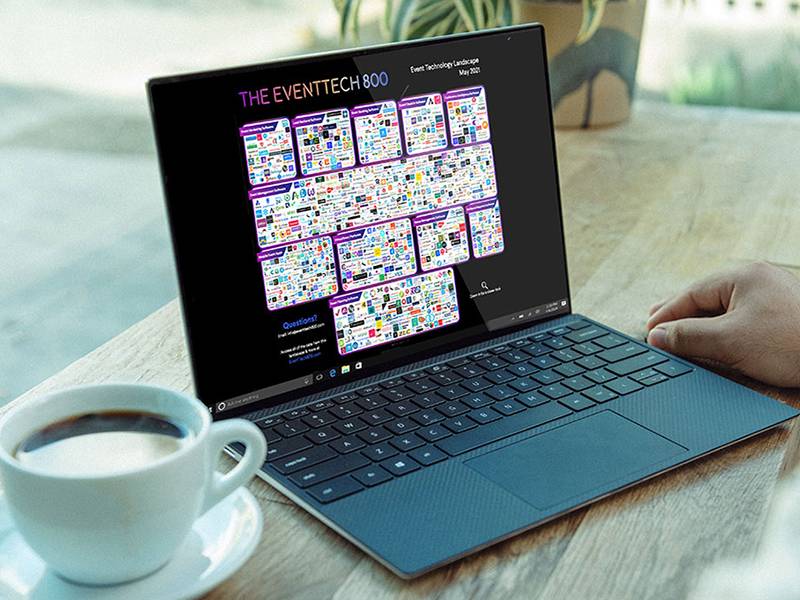Virtual is Real: Event Tech Vendors Have Skyrocketed Over the Past Year!

A new event technology infographic revealed an outstanding vendor landscape these past few months. The EventTech 800 features 832 companies operating in the event technology space, and also displayed an astonishing 400% increase in event technology providers compared to last year. At the centre of this trend is the massive investment directed to the tech market, which changed the rules of the game. The EventTech 800 is a visual representation of this explosive growth, but it also lays bare the overwhelming feeling that overcomes many planners in sourcing event tech. To better explain these drifts, we asked the creator and CEO of Hoosh, Fab Capodicasa (right photo), a few questions.
 1) The EventTech 800 infographic shows a clear trend towards the digitalisation of the market. How should the event industry react to this?
1) The EventTech 800 infographic shows a clear trend towards the digitalisation of the market. How should the event industry react to this?
I think it’s a positive trend because the event industry hasn’t really been a ected by the digital transformation yet. Every industry I worked in either facilitated or went through a digital transformation, but if you look at how events were run before COVID-19, most of them were limited to basic consumer technology, and for me that was the main problem with the event industry in the rst place. It's the sixth most stressful job in the world. It is ripe for emerging companies that want to make this process less stressful by making it more manageable. That’s where I see the true opportunity. I think what the industry realised is that technology is an enabler, a force multiplier that came to make your life less di cult by using purpose−built technologies for events - whether virtual, hybrid or in-person.
2) We all know what is behind this explosion but, assuming that in-person events will return soon, how would you de ne the balance between physical and digital events in the post-COVID era?
I think it’s a spectrum, so there’s no right and wrong answer. For example, what we’re seeing now is companies running events in a physical studio with a face-to-face element among the speakers, maybe a little audience, but that's essentially a television format, a live stream that people can watch online. That I don’t think will last, simply because it’s just not that entertaining. It’s like watching a boring TV show. Why would you want to see this?
At the opposite end of the spectrum, I see virtual reality, simulated reality, with almost all the bene ts of a face- to-face. And who knows, maybe VR technology gets to the point where you can simulate tastes, touches and smells. Imagine yourself simulating sound, physical presence, or touch and interaction in a 3D setting. If you can do all that, why do you need to go in-person from that moment on? What we have now is the lowest version of the hybrid, the more advanced version is yet to come.
3) We are slowly starting to decipher the potential of a digital event in the MICE sphere, but still a little far from imagining the scope of a pandemic-free hybrid environment. What does the future hold for us at this level?
It specifically depends on the audience you are targeting and the age groups. If you’re targeting audiences across multiple time zones, you have to do something di erent. Many event professionals, strategists, planners, and top leaders are making it up, testing their creativity to nd what works. We are still at an experimental stage. I think it will swing back to on-site because there is a lot of latent demand, but when it comes back, count on participants and sponsors asking: what about virtual? What about the people that can’t physically make it? Customers will force change because they want the largest engaged audience possible.
Sponsors, people who are getting ROI, companies who are paying for events, will not allow to go back 100% in-person because they understand that there are advantages to doing both. The challenge then will be how to manage the double or triple amount of work required to actually run it. Hybrid events are not easy to do, they are more complex than both halves. There will be a lot of experimentation and some casualties, but in the end, I think it will be driven by maximising audiences.
Other Articles
About Us
Supported by the Union of International Associations (UIA), the International Association of Professional Congress Organisers (IAPCO) and the Interel Group, the global public affairs and association management consultancy, Headquarters Magazines serve the needs of international associations organising worldwide congresses.



.jpeg)











